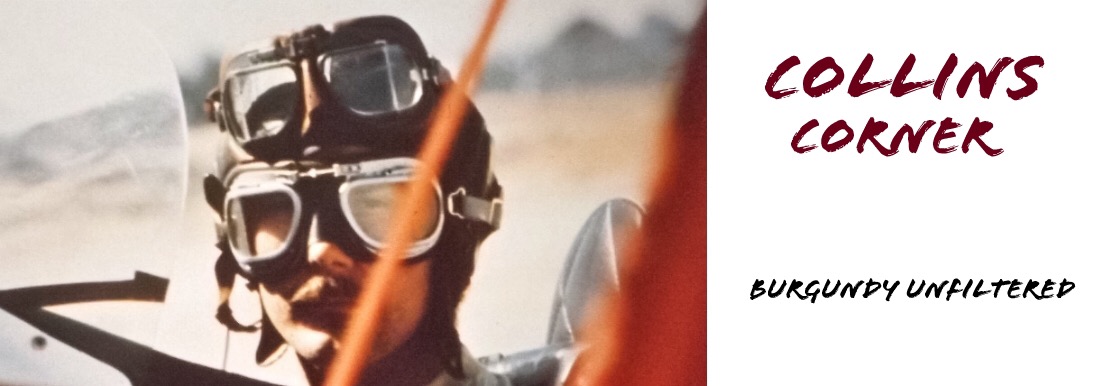I will now lay out my thesis for why Beaune wine is altogether different than the rest. It is not an appellation so much as a philosophy, where you must look to the church rather than the government for an explanation.

The Chroniclers of wine, back for centuries, have integrated it into some form of classification of the cote, but have not captured its meaning. It does not fit because it was born in a different belief system. The emergence of wine from here evolved through the Church. History notes the wine known for its purity. Frequently it was referred to conceptually by the one name, indicating equality. In the center of the era of ‘Burgundy’ as a country, the vines were largely controlled by religious orders.
Its a big place, which is why this is the first of many articles. Imagine for a moment with me that when the Dukes succumbed to domination by the King of France, this area was sequestered off as a city state of its own controlled by the church, which resisted the effects of classification.
You can actually see this today in the barrels controlled and sold by the Hospices. The historical Cuvees are constructed with parts of many locations. This wasn’t done to fill up the names with whatever was donated, the “DAMES HOSPITALIERES is composed Bressandes, La Mignotte, and Therons to create the best wine by utilizing these vineyard components for a higher goal.
So what is wrong with the classification? Criticism is frequently leveled at Beaune for calling ‘everything Premier cru’ where it is not always true, and that the big [ bourgeois ] wine negociants own much of it. I am of the opinion that there was politics rampant in the methods of selection, and think this is hardly a lone example of it.
No Beaune was even submitted for consideration. It is difficult to imagine why the Carmelite site of Greves Vigne de l’Enfant Jesus would not have been considered. No such shyness existed in other appellations.
But wouldn’t a Grand cru occasionally be the best of everything? I submit my own personal notes.
1945, a vintage I have extensive experience with, The best wine, most profound, of the Cote d’Or, for me, is a Beaune. Possibly #2,and #3 are Beaunes. This isn’t a contest, it is just how it felt to me.
1969, Beaunes are very strong against the Grand Crus.
1993 Profound Beaunes against the Nuits.
New vintages to watch. 2005. 2012. If it tastes like a Grand Cru …..?
Perhaps Appellation controllee should be considered advice and not an edict?
In future articles I will break this area into 3 ‘mini apps.’ and expand on the goals of the blends. With the new hands involved in Beaune, there are ample opportunities to find a wine that speaks the truth to you.
### Bob
Collins Corner – recent posts
- Collins Corner #26 – one vine, 3 countrysides January 24, 2022
- Collins Corner #25 – The Good Doctor April 18, 2020
- Collins Corner #24 – The last known bottle! March 26, 2020
- Collins Corner #23 – BEST BGO IN TOWN! February 18, 2020
- Collins Corner #22 – Vintages: Not just a numbers game! January 29, 2020
- Collins Corner #21 – Gaps in the maps. November 18, 2019
- Collins Corner #20 – The numbers game July 7, 2019
- Requiem ; Henri-Frederic Roch [1962-2018] December 19, 2018
- Collins Corner #18 – Wish for the good old days? Don’t look, but they are now! October 17, 2018
- Collins Corner #17 – Blondeau of Volnay July 3, 2018
- Collins Corner #16 – What is in a name? Nicolas Rolin February 26, 2018
- Collins Corner #15 – 50 years may be too soon January 22, 2018
- Collins Corner #14 – An American in Beaune – a war legacy September 21, 2017
- Collins Corner #13 – when communes collide April 10, 2017
- Collins Corner #12 – The vineyard without a hometown January 22, 2017
- Collins Corner #11 -The core of the Beaune appellation December 6, 2016
- Collins Corner: Its a big world, Beaune September 18, 2016
- Collins Corner #9 – Pilgrimage to Beaune July 22, 2016
- Collins Corner #8: Clos de Vougeot – old time religion April 30, 2016
- Collins Corner #7 – Incomparable obscurity – Saint Romain March 5, 2016

 - A true vin d’émotion – a Burgundy of passion
- A true vin d’émotion – a Burgundy of passion - A truly hedonistic wine – lively and enjoyable
- A truly hedonistic wine – lively and enjoyable - A vivacious wine for pure indulgance
- A vivacious wine for pure indulgance - A potential vin d´émotion - frais et léger
- A potential vin d´émotion - frais et léger